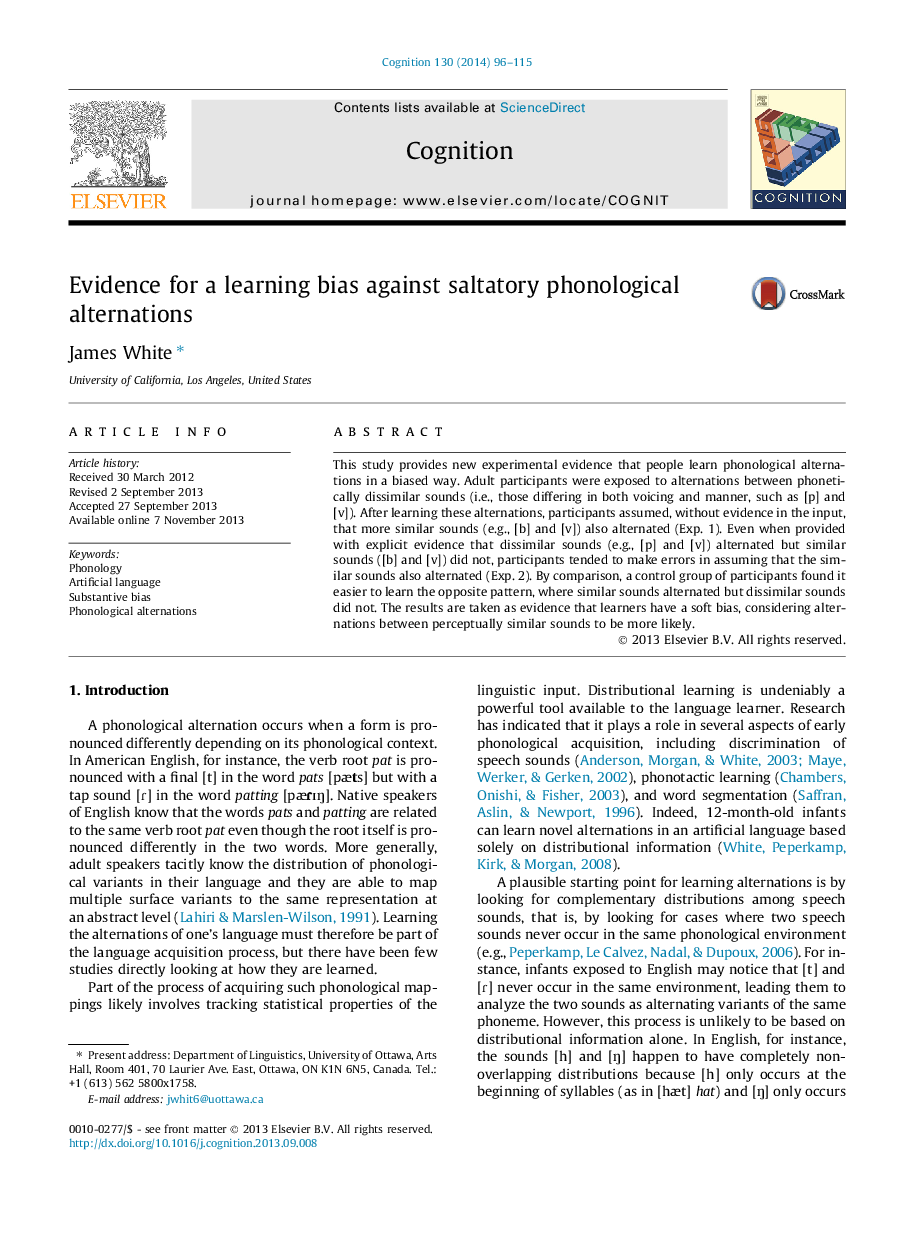| کد مقاله | کد نشریه | سال انتشار | مقاله انگلیسی | نسخه تمام متن |
|---|---|---|---|---|
| 10457768 | 921892 | 2014 | 20 صفحه PDF | دانلود رایگان |
عنوان انگلیسی مقاله ISI
Evidence for a learning bias against saltatory phonological alternations
ترجمه فارسی عنوان
شواهد برای تعصب یادگیری در برابر جابجایی واژگان لغات
دانلود مقاله + سفارش ترجمه
دانلود مقاله ISI انگلیسی
رایگان برای ایرانیان
کلمات کلیدی
فرهنگ لغت، زبان مصنوعی، تعصب اصلی، تغییرات واژگانی،
موضوعات مرتبط
علوم زیستی و بیوفناوری
علم عصب شناسی
علوم اعصاب شناختی
چکیده انگلیسی
This study provides new experimental evidence that people learn phonological alternations in a biased way. Adult participants were exposed to alternations between phonetically dissimilar sounds (i.e., those differing in both voicing and manner, such as [p] and [v]). After learning these alternations, participants assumed, without evidence in the input, that more similar sounds (e.g., [b] and [v]) also alternated (Exp. 1). Even when provided with explicit evidence that dissimilar sounds (e.g., [p] and [v]) alternated but similar sounds ([b] and [v]) did not, participants tended to make errors in assuming that the similar sounds also alternated (Exp. 2). By comparison, a control group of participants found it easier to learn the opposite pattern, where similar sounds alternated but dissimilar sounds did not. The results are taken as evidence that learners have a soft bias, considering alternations between perceptually similar sounds to be more likely.
ناشر
Database: Elsevier - ScienceDirect (ساینس دایرکت)
Journal: Cognition - Volume 130, Issue 1, January 2014, Pages 96-115
Journal: Cognition - Volume 130, Issue 1, January 2014, Pages 96-115
نویسندگان
James White,
